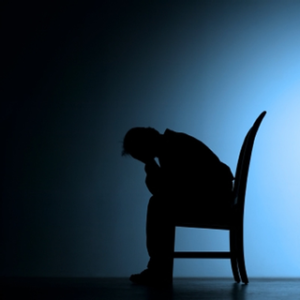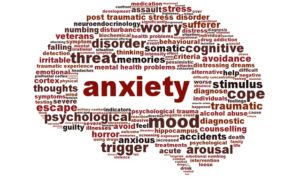 Well, here we go with the second part of this series! Bet you are wondering what less-talked about symptoms I’ll be discussing today, huh? Drum roll, please… In today’s post we are going to be talking about…. Mood!
Well, here we go with the second part of this series! Bet you are wondering what less-talked about symptoms I’ll be discussing today, huh? Drum roll, please… In today’s post we are going to be talking about…. Mood! Mood is a somewhat funny sounding word, isn’t it? Makes me think of the Moody Blues (if you don’t know who that is, you’re most likely younger than I am!); or something involving a cow (Moo!) But no, mood in this case means how we are feeling mentally and how Parkinson’s can affect us in that area. Things such as depression, anxiety, and apathy.
Mood is a somewhat funny sounding word, isn’t it? Makes me think of the Moody Blues (if you don’t know who that is, you’re most likely younger than I am!); or something involving a cow (Moo!) But no, mood in this case means how we are feeling mentally and how Parkinson’s can affect us in that area. Things such as depression, anxiety, and apathy.Disclaimer: What I am discussing here is either my own experiences or what I have researched. I am not a physician, and what I am presenting is not meant to diagnose or treat any illness. See your own physician or neurologist before making any medical decisions regarding this topic!
Depression
 It turns out that depression is very common with us Parkies. In fact, it’s reported to occur in about 35% of all Parkinson’s patients. I say reported because it is thought that even this percentage is greatly underestimating the amount of patients experiencing depression but not reporting it!
It turns out that depression is very common with us Parkies. In fact, it’s reported to occur in about 35% of all Parkinson’s patients. I say reported because it is thought that even this percentage is greatly underestimating the amount of patients experiencing depression but not reporting it!But regardless of the how and why, depression can really be debilitating! The good news is that it appears that Parkinson’s related depression is usually of a milder form than that seen in non-PD patients. And it is treatable! None of us should have to suffer with this type of disorder – there are drugs (SSRI’s, SNRI’s, etc.) that can help ease depression, along with things like counseling and Cognitive Behavioral Training (CBT). And there are even simple lifestyle changes can help with depression – like EXERCISE; getting plenty of sleep; eating good balanced meals – all these things help boost those wonderful brain neurotransmitters!
Anxiety
 Well, if we talked about depression, we have to talk about his little brother – Anxiety; which of course is the opposite of depression. I am very familiar with this disorder; as I have mentioned in previous posts, my mom is a worrier and I take after her in this regard.
Well, if we talked about depression, we have to talk about his little brother – Anxiety; which of course is the opposite of depression. I am very familiar with this disorder; as I have mentioned in previous posts, my mom is a worrier and I take after her in this regard.Apathy

“Lack of interest, enthusiasm or concern; Absence or suppression of passion, emotion, or excitement.” (Dictionary.com)
“Apathy is a state of indifference, or the suppression of emotions such as concern, excitement, motivation, or passion.“(Wikipedia)
Others
- Impulse Control (normally associated with dopamine agonists) – Usually can be controlled by reducing or eliminating the dopamine agonist.
- Psychosis – Visual hallucinations and/or delusions. Up to 40% PD patients can be affected. Counseling can help; changes to your meds; also there are new PD drugs that are supposed to help with this disorder.
- Fatigue – Constant tiredness can cause mood issues (if you’re tired all the time you’re probably cranky too!) Up to 50% of PD population affected. Troublesome to treat – however changes with your meds and/or med schedule can help; lifestyle changes also can be effective.
Your ‘Team’
 Before I close this blog post, I want to make one point that I think is very important in the recognition and treatment of mood disorders – and that is making sure we patients are part of a multidisciplinary approach in treating our PD. What do I mean by that? I mean that each of us needs a ‘team‘ to help us live our lives the best we can with this disease. Not just your general physician and neurologist, but also involving a physical therapist, nurses, surgeon (if wanting/having DBS), and most importantly a psychiatrist/psychologist. It is this person who is best equipped to help a Parkinson’s patient through any mood disorders they may experience. So if possible, try to find a health center that uses this multidisciplinary approach. I have found it to be invaluable in my treatment.
Before I close this blog post, I want to make one point that I think is very important in the recognition and treatment of mood disorders – and that is making sure we patients are part of a multidisciplinary approach in treating our PD. What do I mean by that? I mean that each of us needs a ‘team‘ to help us live our lives the best we can with this disease. Not just your general physician and neurologist, but also involving a physical therapist, nurses, surgeon (if wanting/having DBS), and most importantly a psychiatrist/psychologist. It is this person who is best equipped to help a Parkinson’s patient through any mood disorders they may experience. So if possible, try to find a health center that uses this multidisciplinary approach. I have found it to be invaluable in my treatment.
